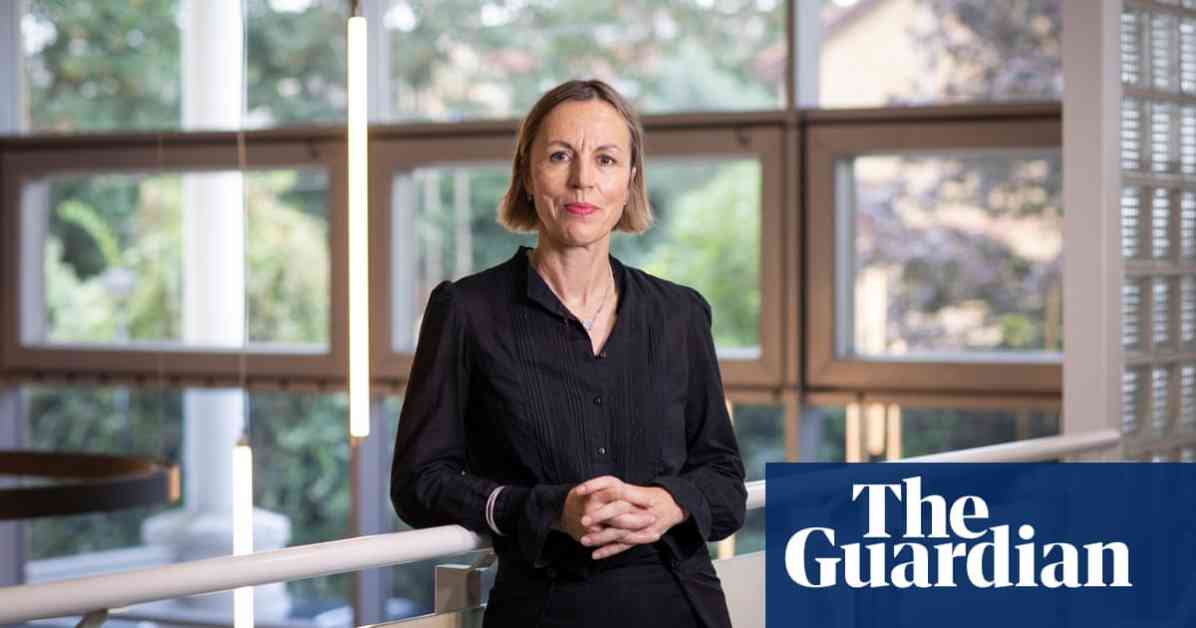Strategies to Develop Positive Relationships with Students
Morpeth School in Bethnal Green, east London, has been at the forefront of implementing innovative strategies to reduce school suspensions and improve student behavior. Headteacher Jemima Reilly has long been concerned about the negative impact suspensions and exclusions have on students’ learning and overall well-being. To address this issue, Morpeth School partnered with The Difference, an organization dedicated to promoting inclusion and supporting vulnerable students.
One of the key initiatives at Morpeth School has been the implementation of training courses designed to equip school leaders with effective strategies for deescalating behavior issues and fostering a sense of belonging among students. By focusing on building positive relationships and creating a supportive school community, Morpeth School has seen a significant decrease in its suspension rate, which now stands at 5.7% of its pupils, below the national average of 9.3% in 2022-23.
Importance of Relational Practice
According to Headteacher Jemima Reilly, the success of Morpeth School in reducing suspensions can be attributed to its emphasis on good “relational practice.” This approach involves developing trust between students and all school staff, not just teachers. One innovative strategy implemented at Morpeth School is the introduction of small “coaching circles” consisting of around 12 students from different year groups. These circles serve as an alternative to traditional tutor groups and aim to build relationships, provide support for struggling students, and foster a sense of community within the school.
Reilly emphasizes that there is no one-size-fits-all solution to reducing suspensions and exclusions. Instead, she underscores the importance of inclusivity and meeting the individual needs of all students. By recognizing and addressing the diverse experiences that students bring to school, teachers can better support their social, emotional, and academic development. Reilly emphasizes the significance of developing meaningful relationships with students as a cornerstone of promoting positive behavior and reducing suspensions.
Challenges Post-Covid
The challenges faced by Morpeth School post-Covid mirror those experienced by secondary schools across England. The disruptions caused by the pandemic have had a profound impact on students, particularly those in years 7 and 8. Reilly notes that the social and educational gaps exacerbated by the pandemic have resulted in increased instances of special educational needs, poor mental health, and behavioral issues among students.
The shift to remote learning during lockdowns has highlighted the importance of face-to-face interaction and social development, particularly for younger students. Reilly points out that children in the middle of their primary education may have missed out on crucial social skills development, leading to challenges in their transition to secondary school. Additionally, the economic hardships faced by many families in Tower Hamlets have contributed to high levels of child poverty, further exacerbating the challenges faced by students.
Supporting Student Needs
At Morpeth School, a comprehensive support system is in place to meet the diverse needs of students. The school employs 35 classroom-based teaching assistants, provides access to educational psychologists and speech and language therapy, and offers counseling services through the young people’s mental health charity Place2Be. Additionally, behavior mentors work closely with students to address behavioral issues proactively and prevent escalations that may lead to suspensions.
Reilly underscores the importance of building strong relationships with students to better understand their needs and provide targeted support. By investing in preventative measures and early intervention, Morpeth School aims to create a supportive environment where students feel valued, respected, and encouraged to succeed. While suspensions are still utilized when necessary, the school’s approach focuses on instilling values of inclusion, equity, and second chances.
Addressing the Impact of Suspensions
Kiran Gill, founder of The Difference, highlights the concerning impact of suspensions on students’ learning and long-term outcomes. Children who experience suspensions are at a higher risk of academic underachievement, unemployment, and health issues in adulthood. Gill emphasizes the importance of addressing the root causes of behavior issues and implementing strategies to reduce lost learning due to suspensions.
Through collaborative efforts with school leaders, The Difference works to identify adaptive solutions that promote positive behavior and support the needs of vulnerable students. By emphasizing the importance of inclusive practices and personalized support, schools can create a nurturing environment where all students can thrive academically and emotionally.
In conclusion, developing positive relationships with students is essential for reducing school suspensions and promoting a supportive learning environment. By prioritizing relational practice, investing in targeted support services, and fostering a sense of belonging among students, schools can create a culture of inclusivity and equity. As educators continue to navigate the challenges presented by the post-pandemic landscape, it is crucial to prioritize the well-being and success of all students through proactive intervention and collaborative efforts.

